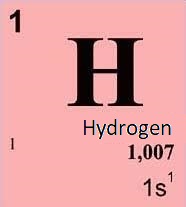Hydrogen is a chemical element with the symbol H and atomic number 1. It is the lightest element in the periodic table and is also the most abundant element in the universe, accounting for around 75% of its elemental mass.
Physical properties of hydrogen
- Hydrogen is a colorless, odorless, tasteless gas at standard temperature and pressure.
- It is the lightest gas and has a density of only 0.0899 g/L at standard temperature and pressure.
- Hydrogen gas is highly flammable and can burn in air or oxygen with a pale blue flame.
- It has a boiling point of -252.87°C and a melting point of -259.14°C.
Chemical properties of hydrogen
- Hydrogen is a highly reactive element and readily combines with other elements to form compounds.
- It is a diatomic molecule, meaning that it consists of two hydrogen atoms bonded together.
- Hydrogen gas can react explosively with oxygen gas in the presence of a spark or flame to form water vapor.
Other properties
- Hydrogen is widely used in various industrial applications, such as in the production of ammonia for fertilizers and in the refining of petroleum.
- It is also used as a fuel for vehicles and as a potential source of clean energy through fuel cell technology.
- Hydrogen has three naturally occurring isotopes: protium (1H), deuterium (2H), and tritium (3H), which have different numbers of neutrons in their nuclei.
